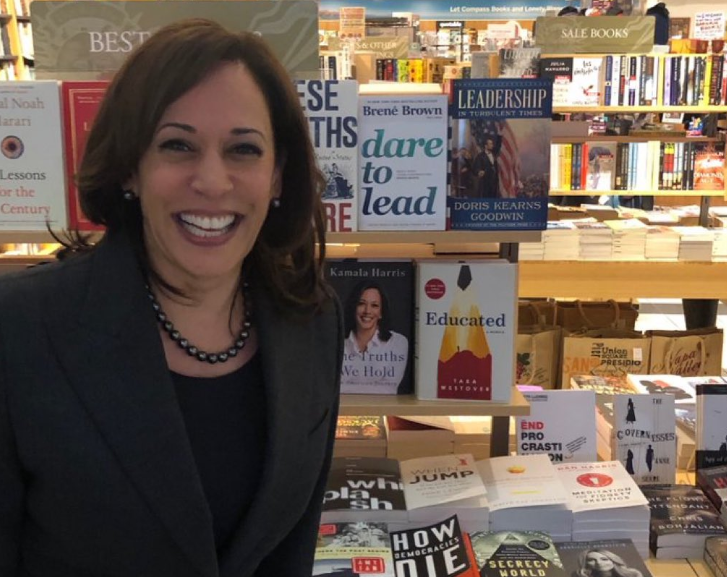Kamala Harris’s new book “107 Days” takes aim at Joe Biden’s decision to run for reelection, calling it reckless and driven by ego. From her infamous “The View” interview to tensions with Biden’s team, staff turnover controversies, and missed opportunities on the economy, Harris shares her candid perspective on the 2024 campaign and her political future.
Kamala Harris Puts Biden on Blast in Her New Book “107 Days”
In the latest political storm shaking Washington, Former Vice President Kamala Harris has taken direct aim at former President Joe Biden in her newly released book “107 Days.” The memoir, already drawing significant attention, provides her candid reflections on the turbulent 2024 election cycle, the dynamics between her team and Biden’s inner circle, and her frustrations with how the campaign was managed. For the first time, Harris sets her own narrative on what went wrong, why she believed Biden’s decision to seek another term was a mistake, and how she views her political future.
One of the most striking revelations in the book is Harris’s sharp critique of Biden’s decision to run for reelection. She recalls how the mantra during those months was, “It is Joe and Jill’s decision.” But looking back, Harris calls that approach reckless rather than graceful. “Was it grace or recklessness? I think it was recklessness,” she writes, arguing that such a monumental choice should not have been left to what she describes as “an individual’s ego.” In her view, it should have been about more than personal ambition—it should have been about the future of the Democratic Party and the nation.
The Former Vice President’s public posture during the campaign was, of course, far different. Harris admits she did not have the space to voice such criticisms at the time. One moment that stands out in hindsight is her infamous appearance on “The View” after the Democratic National Convention. When asked by co-hosts what she might have done differently during the campaign, Harris stumbled. Unable to provide a concrete answer, she left critics wondering whether she had the political instincts to handle high-pressure questions. Some Democrats even accused the program’s host Sunny Hostin of asking an outrageous question that damaged Harris’s standing.

Harris reflects on that moment in the book, explaining her hesitation. She recalls how within Biden’s orbit there was a “zero-sum” mentality—if she shined, it would be seen as making Biden look weak. “None of them grasped that if I did well, he did well,” she writes. Her visible success was not only a benefit but a necessity, she argues. Yet Biden’s team failed to embrace this reality, leading to tensions between the two camps.
The book also addresses one of the most widely covered issues of Harris’s vice presidency: the constant turnover among her staff. The Washington Post once quipped that every six months her team was undergoing another “makeover.” Harris defends the pattern as relatively normal, though she acknowledges that the public perception fed into narratives of dysfunction. Meanwhile, Biden had advisers who had stood by him since the 1970s and 1980s, giving his operation a sense of stability and loyalty. The stark contrast between the two offices highlighted the internal tension between the President’s and Vice President’s teams, tensions Harris now lays bare in her memoir.
Strategists analyzing the book say Harris has been smart to release her account before Biden publishes his own version of events. “Do you think she wanted to beat him to the punch?” one commentator asked. The answer: absolutely. By getting out ahead, Harris ensures her voice is the first to define the narrative of that campaign cycle. But whether Biden or his allies will strike back remains an open question. Some argue the Biden camp will choose not to “fan the flames,” allowing the book to run its course rather than risk prolonging the controversy.
Looking back on what Harris could have done differently during the campaign, experts point to her missed opportunity to own the economic message. While the Biden administration branded its policy agenda as “Bidenomics,” the branding never resonated with voters. Inflation, rising housing costs, and everyday financial struggles dominated public sentiment. Harris, critics say, could have set herself apart by leaning into those concerns more forcefully. Instead, the campaign found itself on the defensive, insisting inflation was not the administration’s fault while struggling to connect with voters’ day-to-day realities.
As Harris seeks to shape her political future, the memoir may serve as both a shield and a stepping stone. By candidly acknowledging the constraints she faced, she invites readers to sympathize with the position she was put in—a vice president navigating internal power struggles while tethered to a president whose political judgment she increasingly questioned. Whether this buys her room for another run remains to be seen. But the book undoubtedly provides her with distance from the decisions of the Biden years, carving out her own identity in the public eye.
In politics, timing is everything. Harris’s decision to release “107 Days” while memories of the 2024 campaign remain fresh allows her to reclaim her narrative before it is cemented by others. For supporters, the book highlights her resilience and her capacity to reflect critically on past mistakes. For detractors, it may fuel further doubts about her leadership style and her inability to navigate crises in real time.
Either way, one thing is clear: Kamala Harris has chosen not to remain silent. She is willing to critique the past, own her perspective, and position herself for whatever political chapter may come next. And in the world of American politics, that willingness to speak out may prove to be her most important asset.

